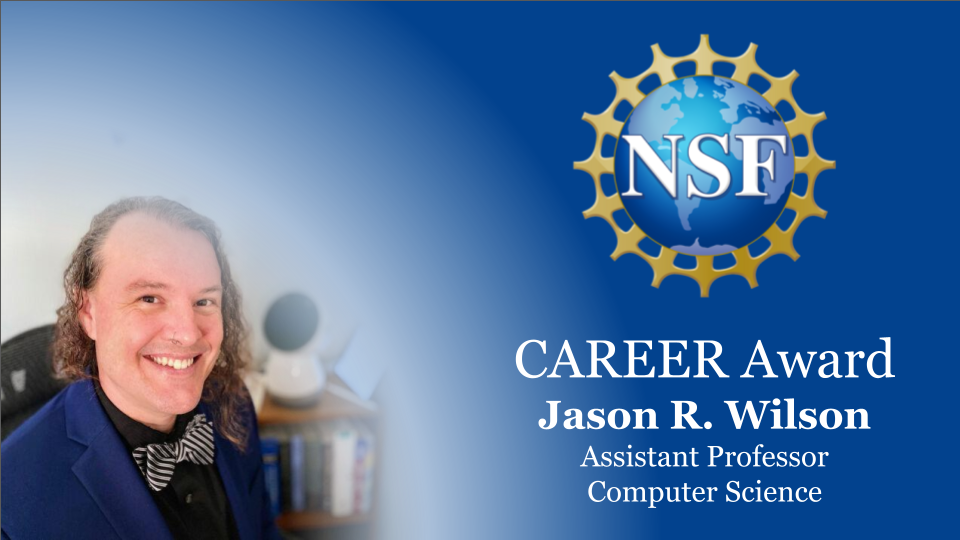CAREER Award

Through this award, I will be able to support the development of a number of undergraduate researchers over the next five years. Additionally, I will be looking to hire a graduate student intern each summer. This will be a unique opportunity to bring graduate level research to a small liberal arts college.
I’m particularly proud that both the research and education plan for this work emphasizes the ethical application of technology. The research includes developing transparent algorithms that allow for detailed inspection of the reasoning and decision-making processes of a social robot. On the education side, I will be broadening access to critical knowledge on the ethical and social implications of technology by developing curricular materials for courses outside of computer science.
Let me now briefly tell you a little more about the proposed work.
Social robots that assist young children provide new learning opportunities in the classroom. If a robot can reason about a child’s goals, intentions, and beliefs, then it can provide better help. Current approaches in social robotics have not used theory of mind reasoning (ToM). The goal of this research is to develop ToM algorithms. This will allow social robots to infer a child’s goals, intentions, and beliefs. The robot can then respond with more effective help. The algorithms use analogical reasoning to make each inference step. This provides transparency and explainability in the robot’s reasoning. The aim is that children and parents will see the robot as effective, helpful, and trustworthy. The outcome will contribute to more ethical applications of robots. The educational aspect of this project aims to create a more informed citizenry. The project will develop and integrate machine ethics materials across curricula. These materials will address the social and ethical implications of technology. The research and education goals both address the broader need for ethical technology.
From a technical perspective, there are three key goals for this research. The first is to develop algorithms for ToMreasoning. The second goal is to show that the algorithms are transparent and explainable. The third goal is to show that social robots using ToM reasoning will be more effective. The expected outcome is that people will have a more positive view of these robots. The robot needs to use ToM reasoning in two challenging situations. First, the robot may know something that the child does not know. Also, the child may know something that the robot does not know. To enable ToM reasoning, the project explores novel applications of analogical chaining. This approach uses analogies to make a series of inferences. The project lead will partner with development psychologists. Together, they will determine the effectiveness of the ToM reasoning. They will examine how parents and children perceive the robot. The development and evaluation of these algorithms will advance five critical research areas. First, the project will advance analogical reasoning. It will apply analogical reasoning to problems related to human-robot interaction (HRI). Second, the research will produce a novel algorithm for theory of mind reasoning for use in HRI. Third, the research will produce unique datasets featuring complex theory of mind scenarios. Fourth, researchers will provide new knowledge on how children and parents see robots. Last, the researchers will collect knowledge from experts. This knowledge will suggest how a robot should help and support children. One broader impact of this project is the effects it will have on undergraduate students. The project aims to support the growing diversity of computer science. Part of this plan is to recruit students from all backgrounds. Students will support all aspects of the research. The intent is to encourage more students to consider further research opportunities.
Enjoy Reading This Article?
Here are some more articles you might like to read next: